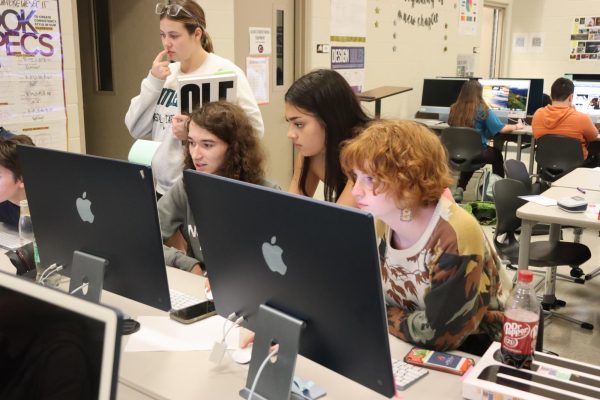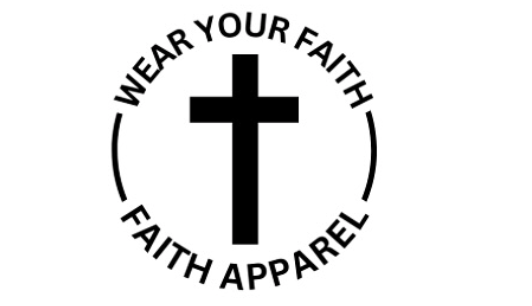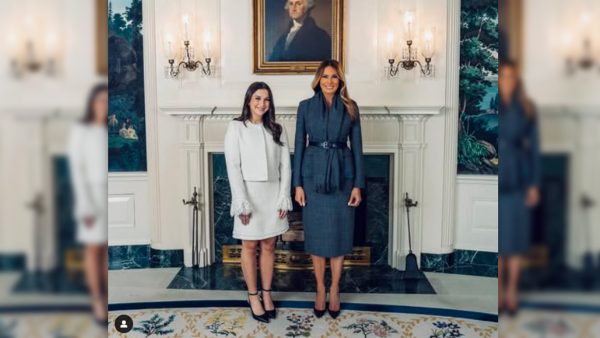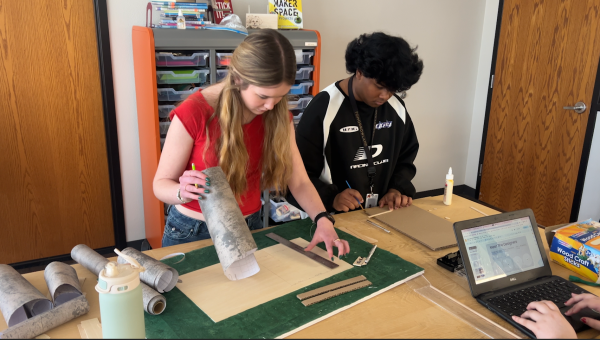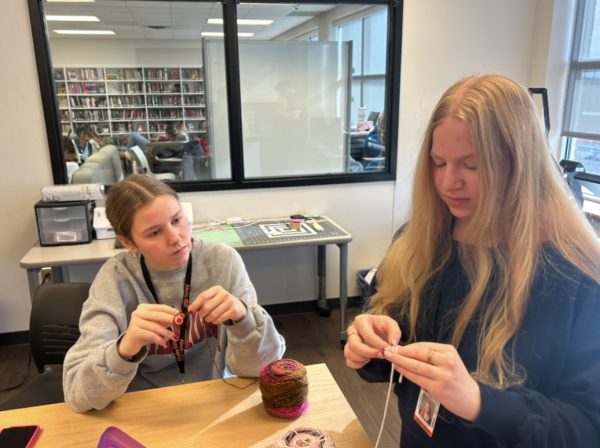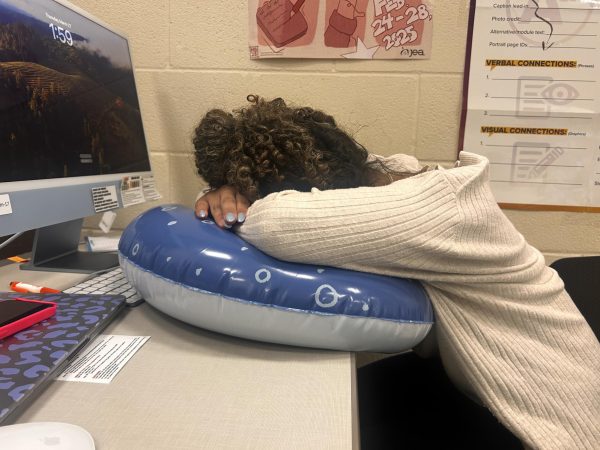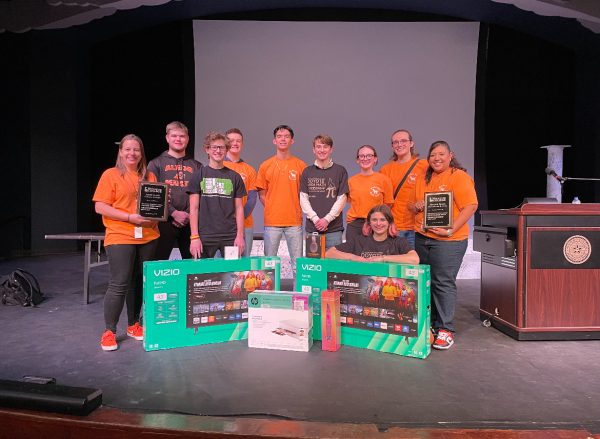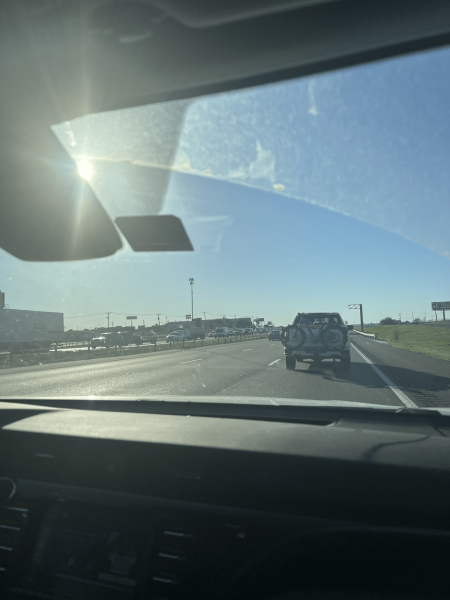Passion for Politics Takes Senior to Polls
Senior Georgia Giddens worked as an election clerk on Election Day.
“Hey pretty girl, want to grab a drink after you get off?”
“Come on out to our cars, we’re going to start a war and we want you with us.”
Senior Georgia Giddens politely declined, explaining she was only a high school student and turned back to her station, ignoring the men jeering at her and the other young election clerks.
“That’s OK, we want high schoolers,” they responded. Disgusted, Giddens turned away.
Despite feeling uncomfortable, working the polls was something Giddens felt compelled to do. She is not old enough to vote, so volunteering allowed her to play a valuable role in this year’s election. Politics did not play a big role in her life until the 2016 election when Giddens was really bothered by what she saw.
“The main thing that I want is for women, LGBTQ, and everyone else to have the same rights, and I feel like right now they don’t,” Giddens said.
Giddens arrived at Trinity Lutheran Church poll site 205 at 6:30 a.m. to begin her 13-hour shift.
“All day you just sit there and wait for the voters to come in,” Giddens said. “Then you have to check if they’re registered. If they are, you give them their ballot and send them to the voting box and then take their ballot when they’re done.”
If the voters aren’t registered, the clerks give them a provisional ballot which serves as an indicator that there are questions about the voter’s eligibility.
“Some people put up a fight about [their eligibility] but once they heard [Parker County officials] on the phone tell them they weren’t registered, they accepted it,” Giddens said. “But a lot of people didn’t even know that you had to register.”
Voters aren’t allowed to wear political paraphernalia to the polls, and the election clerks spent a lot of time asking them to remove or cover their political shirts and masks.
“Once we said, ‘You have to leave,’ they either put paper towels over their shirt or flipped their masks inside out because they wanted to vote,” Giddens said. “But most of them were very angry about it when we said it at first.”
Giddens said she also witnessed several instances of attempted voter intimidation, which is against federal law in all 50 states.
“[Some] people would come in and yell out who they were voting for and why,” Giddens said. “Then they would ask us if we were voting for Trump, and we would tell them we couldn’t answer that. Then they would say, ‘Well if you’re not that’s really upsetting and we’re going to do something about it after the election.’ They would go up to other people and say, ‘If you don’t vote for Trump, we’ll start a war.’”
Despite feeling shaken by these comments, Giddens said there was never a point at which she felt like she was in real danger.
“You can’t come within 100 feet of the voting site unless you’re voting. We were in a church and it was just kind of in the back of a neighborhood so I didn’t feel intimidated, but I would have if I were in other places.”
Politics also play a big role in her family. Her cousin works in the Congressional office in Austin and her family is very outspoken about their views.
“Being democratic in Parker County has been a challenge,” Giddens said. “In first grade when we had our mock election, I got made fun of for being democratic, and it’s gotten worse since. People judge my boyfriend for dating a Democrat and me for being one. They say I’m not educated on different things and it’s just really upsetting because everyone should have their own views, and I respect other people’s, but people don’t respect mine.”
This year’s election had the highest voter turnout in history. Giddens said she believes that the mobilization of a new, young generation of voters, as well as the looming threat of COVID-19 contributed to the turnout.
“[COVID-19] is the biggest limit that we have on our lives right now. People are losing jobs and stuff, and I think looking at all the candidates’ ways of handling COVID was a very big deal,” Giddens said.
Giddens is also a member of the Aledo High School chapter of High School Democrats of America (HSDA).
“All throughout high school I’ve never felt like there was a safe place to talk about my views,” Giddens said. “But now that I have [HSDA], it’s just somewhere where I can go and I can talk and I can also learn.”
Giddens said she feels that it is important for young people to get involved, even if they are not able to cast a vote.
“Young people are realizing, ‘If we want something good for our country, we need to do something about it,’” Giddens said.




